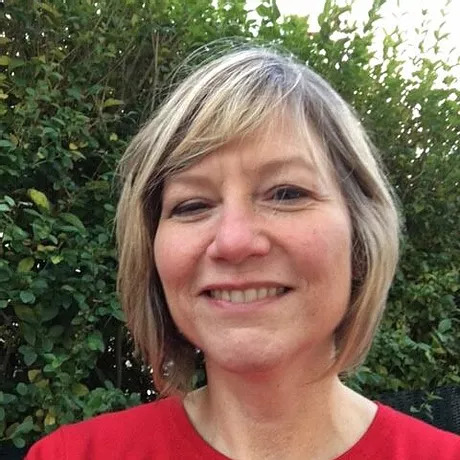 Dr. Emily Stanton joined Community Relations In Schools (CRIS) as Programme Manager in October 2020 having worked within the peacebuilding field both in Northern Ireland and internationally for over twenty years. Emily was awarded a doctorate in International Conflict and Peacebuilding with INCORE from Ulster University in 2018. Her professional practice includes research, teaching, and training in peace and conflict studies, education, mediation, trauma and resiliency, and community relations. She is also experienced in conducting community-based monitoring and evaluation on topics of peacebuilding and social cohesion. Emily has two children and lives in East Belfast with her husband, cat, and dog.
Dr. Emily Stanton joined Community Relations In Schools (CRIS) as Programme Manager in October 2020 having worked within the peacebuilding field both in Northern Ireland and internationally for over twenty years. Emily was awarded a doctorate in International Conflict and Peacebuilding with INCORE from Ulster University in 2018. Her professional practice includes research, teaching, and training in peace and conflict studies, education, mediation, trauma and resiliency, and community relations. She is also experienced in conducting community-based monitoring and evaluation on topics of peacebuilding and social cohesion. Emily has two children and lives in East Belfast with her husband, cat, and dog.
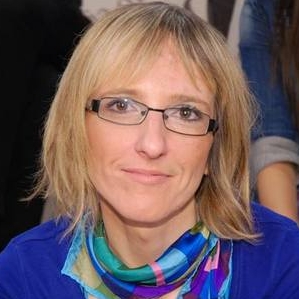 Dr. Zlatiborka Popov Momčinović is an associate professor of political sciences at the Faculty of Philosophy, University of East Sarajevo. Her PhD dissertation was Women's Movement in post-Dayton Bosnia and Herzegovina: Achievements, Initiatives, and Controversies at the Faculty of Political Sciences in Belgrade. The focus of her research is on gender, development of civil society and women’s activism, religion and politics, professionalism of media and reconciliation processes. She is active in civil society, trying to reconcile scientific and activist engagement, and was engaged as an expert and key-note speakers by various NGOs in activities related to gender equality, religious tolerance and dialogue, rights and freedoms of marginal groups (autistic children, mothers of children with disabilities, LGBT population), media literacy, political culture and participation.
Dr. Zlatiborka Popov Momčinović is an associate professor of political sciences at the Faculty of Philosophy, University of East Sarajevo. Her PhD dissertation was Women's Movement in post-Dayton Bosnia and Herzegovina: Achievements, Initiatives, and Controversies at the Faculty of Political Sciences in Belgrade. The focus of her research is on gender, development of civil society and women’s activism, religion and politics, professionalism of media and reconciliation processes. She is active in civil society, trying to reconcile scientific and activist engagement, and was engaged as an expert and key-note speakers by various NGOs in activities related to gender equality, religious tolerance and dialogue, rights and freedoms of marginal groups (autistic children, mothers of children with disabilities, LGBT population), media literacy, political culture and participation.
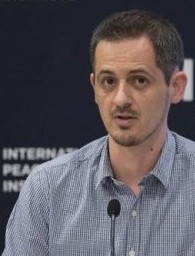 Dr. Jasmin Ramović is a Lecturer in Peace and Conflict Studies in Politics Department at the University of Manchester. He is interested in interdisciplinary approaches to studying international relations, particularly the intersection of anthropology, international political economy and peace and conflict studies. His research focuses on local actors in conflict-affected settings, with a specific focus on the economic dimension of their everyday. This has led his recent research projects to concentrate on examining the potential of the workplace for peacebuilding in Bosnia and Herzegovina, particularly the changes which affected this space in country’s transition from the socialist to capitalist economy. He is also interested in analysing the state of social contracts in societies divided by violent conflicts. His research has been published in international journals and he has recently co-edited The Palgrave Handbook of Disciplinary and Regional Approaches to Peace (2016).
Dr. Jasmin Ramović is a Lecturer in Peace and Conflict Studies in Politics Department at the University of Manchester. He is interested in interdisciplinary approaches to studying international relations, particularly the intersection of anthropology, international political economy and peace and conflict studies. His research focuses on local actors in conflict-affected settings, with a specific focus on the economic dimension of their everyday. This has led his recent research projects to concentrate on examining the potential of the workplace for peacebuilding in Bosnia and Herzegovina, particularly the changes which affected this space in country’s transition from the socialist to capitalist economy. He is also interested in analysing the state of social contracts in societies divided by violent conflicts. His research has been published in international journals and he has recently co-edited The Palgrave Handbook of Disciplinary and Regional Approaches to Peace (2016).
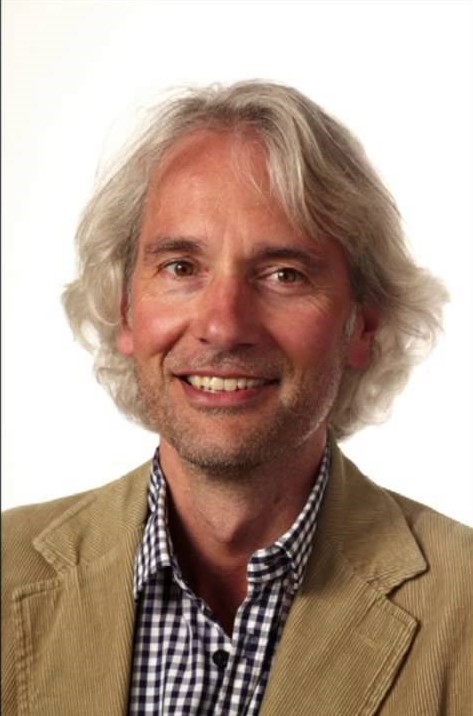
Dr. Oliver Richmond is a research professor in Politics Department, University of Manchester. His primary area of expertise is in peace and conflict theory, and in particular its inter-linkages with IR theory. He is currently working on a book on The International Peace Architecture and Global Order in the 21st Century (OUP, forthcoming). His most recent work has been on peace formation and its relation to state formation, statebuilding, and peacebuilding (Failed Statebuilding and Peace Formation, Yale University Press 2014 & Peace Formation and Political Order, Oxford University Press, 2016). This area of interest has grown out of his work on local forms of critical agency and resistance, and their role in constructing hybrid or post-liberal forms of peace and states (see A Post-Liberal Peace, Routledge, 2011), as well as earlier conflict resolution and conflict management debates in IR, including international mediation, peacekeeping, and state formation debates. He has also published a Very Short Introduction to Peace (Oxford University Press, 2014), which offers an overview of the development of related concepts, theory and practices. He edits a Palgrave Book Series called Rethinking Peace and Conflict Studies, which seeks to provide a forum for the development of new and alternative approaches for understanding the dynamics of conflict and of the construction of peace. He is also co-editor of the journal "Peacebuilding”.
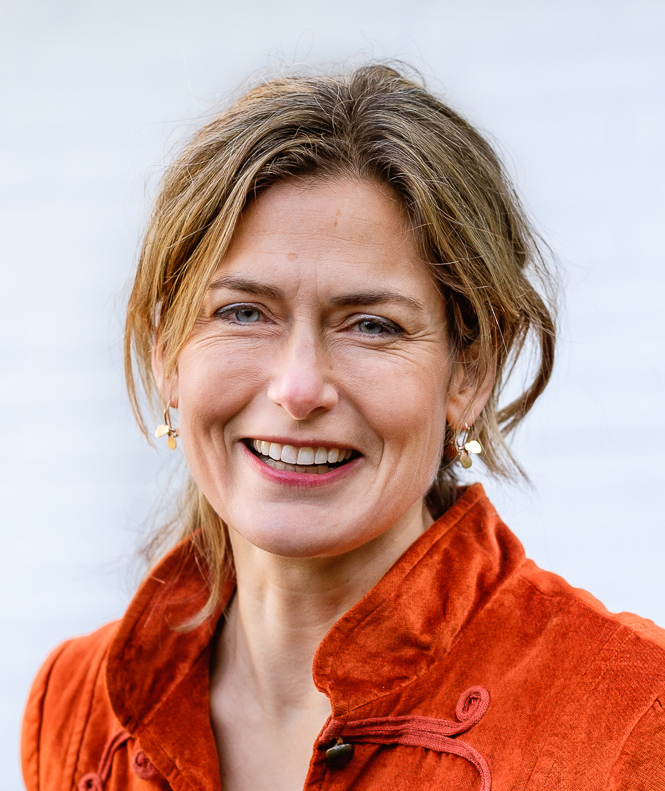
Dr. Michelle Parlevliet is a peacebuilding practitioner and process facilitator with a long-term focus on the nexus of peacebuilding, conflict transformation, human rights and social justice, working since 1995 at community, national and international levels in various contexts. She served, amongst other things, as senior conflict transformation adviser for the Danish Foreign Ministry in Nepal at the end of the civil war; worked with the conflict team of the World Bank in Aceh; with the Centre for Conflict Resolution in South Africa; and the South African Truth and Reconciliation Commission. Upon her return to Europe in 2010, she served a few years as an academic at the Universities of Amsterdam and Copenhagen upon completion of her PhD, before striking out again as an independent practitioner. She's an associate of international peacebuilding NGO Conciliation Resources and a senior associate with Reos Partners (a social enterprise focusing on systemic change and complex challenges). In the latter capacity she's currently co-facilitating a multi-stakeholder dialogue process on criminal justice in the Netherlands. Michelle holds a PhD in law and MA degree in political science (Univ of Amsterdam) and a MA degree in international peace and conflict Studies (Un. of Notre Dame, IN).
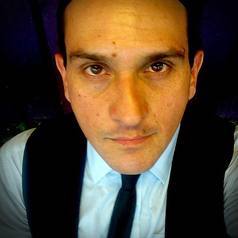 Dr. Louis Monroy Santander is lecturer in International relations at Ponctificia Universidad Javeriana in Colombia. He is also associate researcher at BSocial Col - Innovación Social para el Desarrollo – in Colombia and project assistant for Asfar CIC in Sarajevo. Dr Monroy Santander has a PhD in International Development from the University of Birmingham in the United Kingdom. His research focuses on the possible links between state reconstruction practice and initiatives for reconciliation in Bosnia and Herzegovina. Dr. Monroy Santander specializes in the fields of conflict resolution, peacebuilding, and transitional justice, focusing specifically on approaches to reconciliation in post-conflict societies and their relation with processes of state-building. He has collaborated with various Bosnian-based organizations.
Dr. Louis Monroy Santander is lecturer in International relations at Ponctificia Universidad Javeriana in Colombia. He is also associate researcher at BSocial Col - Innovación Social para el Desarrollo – in Colombia and project assistant for Asfar CIC in Sarajevo. Dr Monroy Santander has a PhD in International Development from the University of Birmingham in the United Kingdom. His research focuses on the possible links between state reconstruction practice and initiatives for reconciliation in Bosnia and Herzegovina. Dr. Monroy Santander specializes in the fields of conflict resolution, peacebuilding, and transitional justice, focusing specifically on approaches to reconciliation in post-conflict societies and their relation with processes of state-building. He has collaborated with various Bosnian-based organizations.

